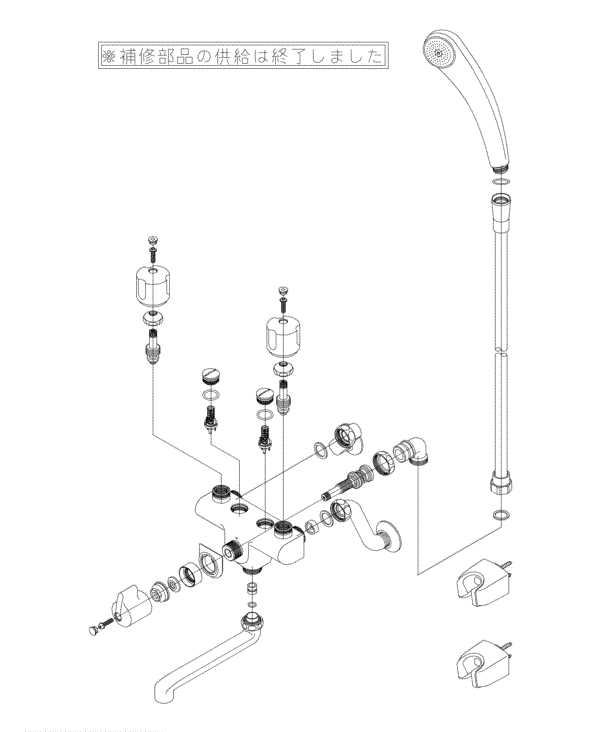
The intricacies of household fixtures can often be challenging to navigate. A well-organized representation of the various elements involved not only aids in comprehension but also enhances maintenance efficiency. Whether dealing with installation or troubleshooting, having a clear overview is essential for ensuring proper functionality.
In this section, we will delve into the essential components of a popular fixture model, highlighting their specific functions and interconnections. This informative layout serves as a valuable resource for both novice and experienced users alike, facilitating a better understanding of how each piece contributes to the overall operation.
By familiarizing oneself with this visual guide, individuals can approach repairs or upgrades with confidence, reducing the risk of errors. Emphasizing clarity and accessibility, the information provided here aims to empower users to make informed decisions regarding their household installations.
This section outlines a structured approach to creating a comprehensive article centered around the essential elements of a specific faucet model. By breaking down the topic into distinct categories, readers can easily navigate and grasp the various components and functionalities involved in the assembly and maintenance of these fixtures.
Essential Components of Kitchen Fixtures
Explore the fundamental elements that comprise kitchen faucets, highlighting their roles and interconnections.
Types of Kitchen Faucets
Discuss the various styles available in the market, emphasizing their unique features and designs.
Common Issues and Solutions
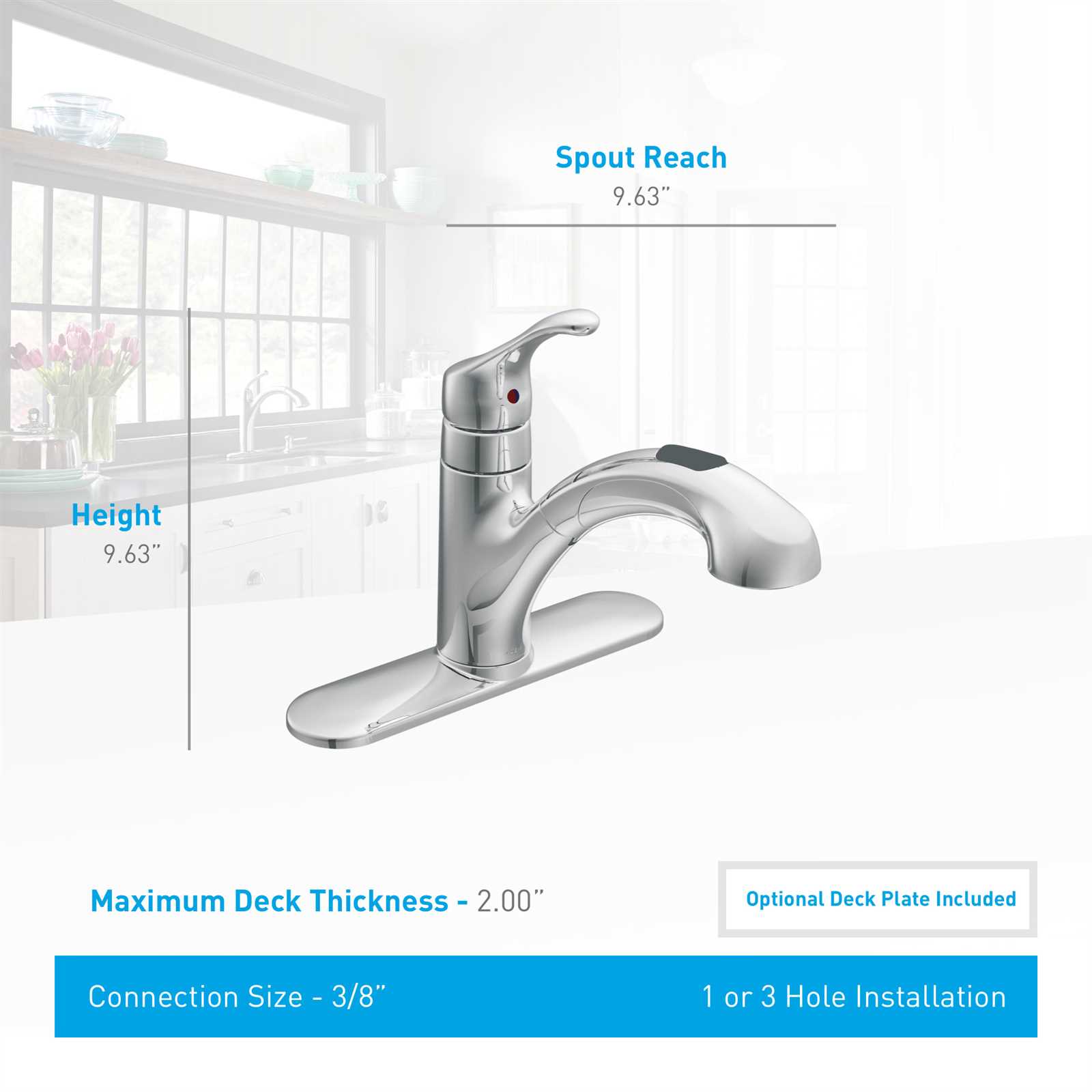
Identify frequent problems encountered with kitchen fixtures and provide practical solutions to address them.
Maintenance Tips for Longevity

Offer advice on how to maintain kitchen faucets to ensure their durability and performance over time.
Installation Process Overview
Detail the steps involved in installing a new kitchen fixture, from preparation to completion.
Replacement Parts and Upgrades
Highlight options for replacing or upgrading components to enhance functionality or aesthetics.
Tools Needed for Installation
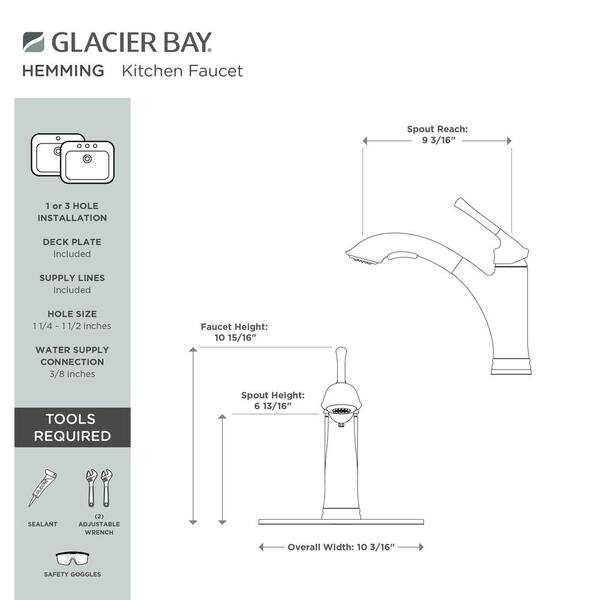
List the essential tools required for installing or repairing kitchen fixtures, ensuring users are well-equipped.
Choosing the Right Fixture for Your Home
Guide readers on how to select the most suitable faucet for their specific needs and preferences.
Understanding Faucet Technology
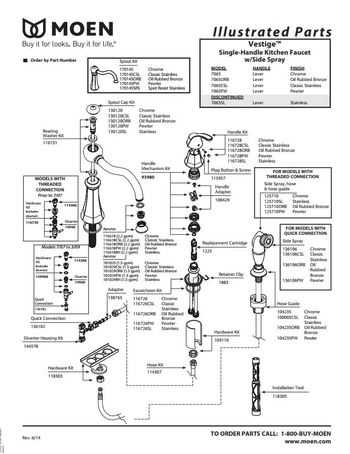
Examine the technological advancements in kitchen faucets, such as touchless features and water-saving mechanisms.
Common Misconceptions
Address and clarify myths related to kitchen fixtures and their usage.
Comparing Different Brands
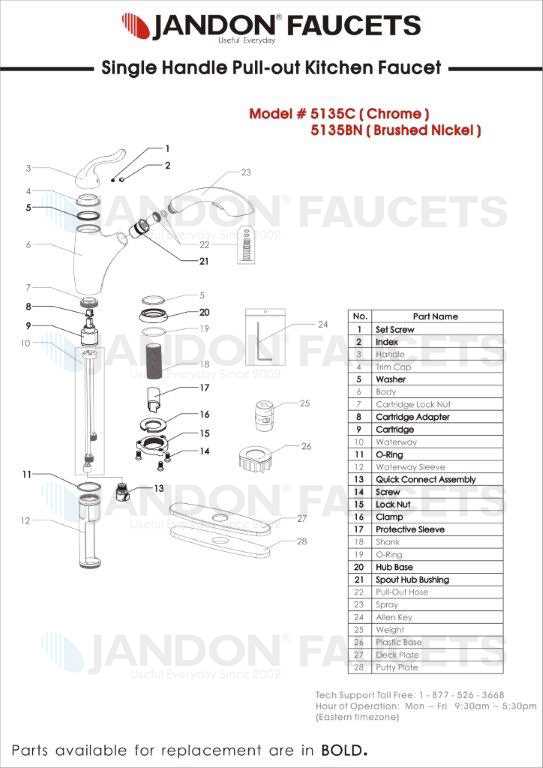
Provide a comparative analysis of various faucet manufacturers and their offerings.
Future Trends in Kitchen Fixtures
Explore emerging trends in design and technology that are shaping the future of kitchen faucets.
Key Components of Moen Products
The design and functionality of high-quality fixtures rely on the harmonious combination of essential elements. Each part plays a crucial role in ensuring the performance, durability, and overall user experience of these products. Whether focusing on internal mechanisms or external finishes, every aspect contributes to the seamless operation and longevity of the item.
One of the main features is the water control mechanism, responsible for regulating temperature and flow. This ensures precise adjustments, providing comfort and efficiency in everyday use. Another significant element is the finish, which not only enhances aesthetics but also provides protection against wear and corrosion over time.
Additionally, the mounting hardware ensures the secure installation of the product, keeping it stable and functional in various environments. Together, these components
Identifying Common Issues
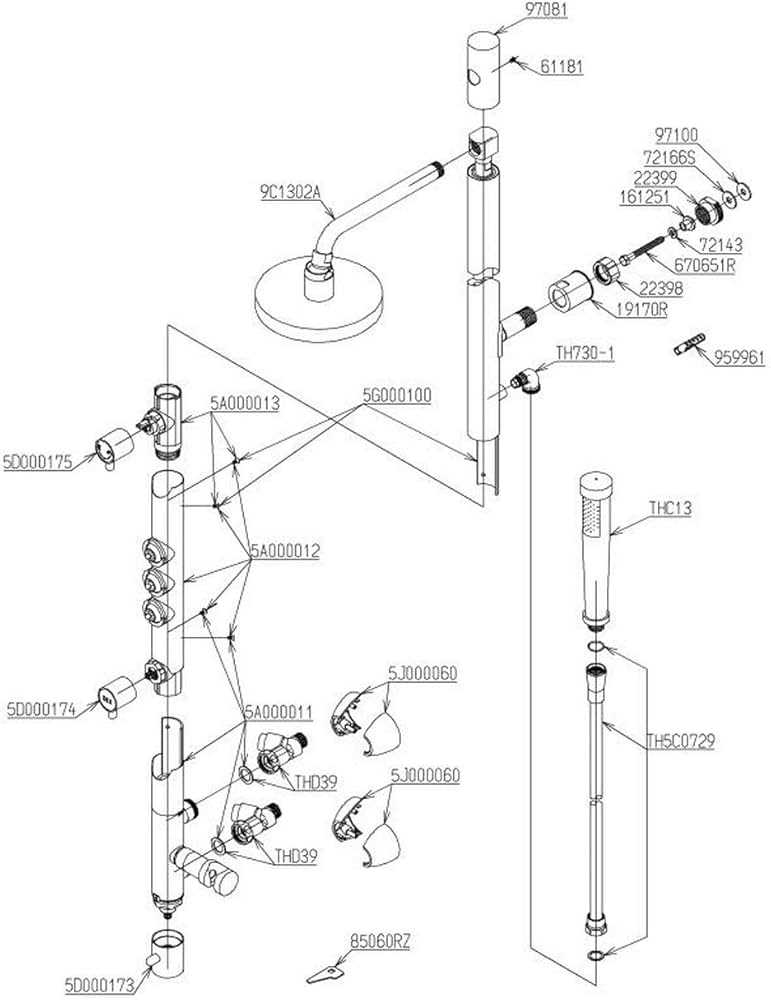
Understanding prevalent challenges can significantly enhance the performance and longevity of your plumbing fixtures. By recognizing these issues early, homeowners can prevent minor inconveniences from escalating into costly repairs. This section outlines some typical problems that may arise with various components and offers guidance on how to address them effectively.
Leaks and Drips
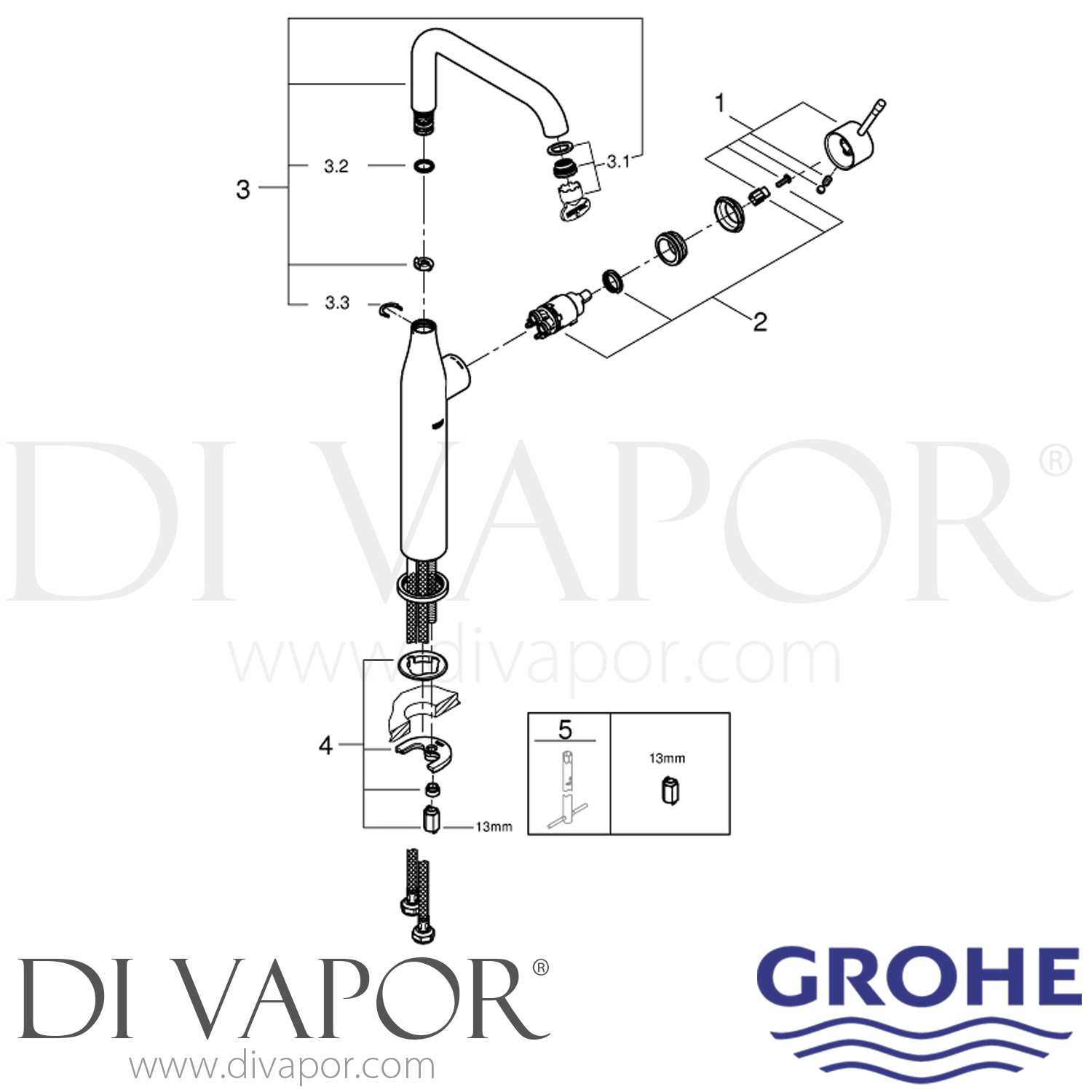
One of the most frequently encountered problems is the presence of leaks or persistent drips. These can occur due to worn-out seals or damaged connections. Inspecting the fixture for any signs of water accumulation can help pinpoint the source. Regular maintenance and timely replacement of faulty components can prevent water wastage and potential damage.
Temperature Control Issues
Another common concern involves difficulties in regulating water temperature. Fluctuations may result from a malfunctioning thermostat or issues within the mixing valve. Ensuring that these elements are functioning correctly is crucial for achieving a comfortable and consistent water temperature during use.
Importance of Accurate Diagrams
Precise visual representations are essential in understanding the components of any system. They serve as invaluable tools for technicians and users alike, providing clarity and facilitating efficient maintenance. Without these reliable illustrations, the likelihood of errors during assembly or repairs increases significantly, potentially leading to malfunctions or inefficiencies.
Enhancing User Understanding
Clear visual aids simplify complex information, allowing individuals to quickly grasp the structure and functionality of each element. By offering a straightforward reference, these illustrations empower users to engage with their devices more confidently. As a result, the overall experience is improved, reducing frustration and enhancing satisfaction.
Facilitating Efficient Repairs
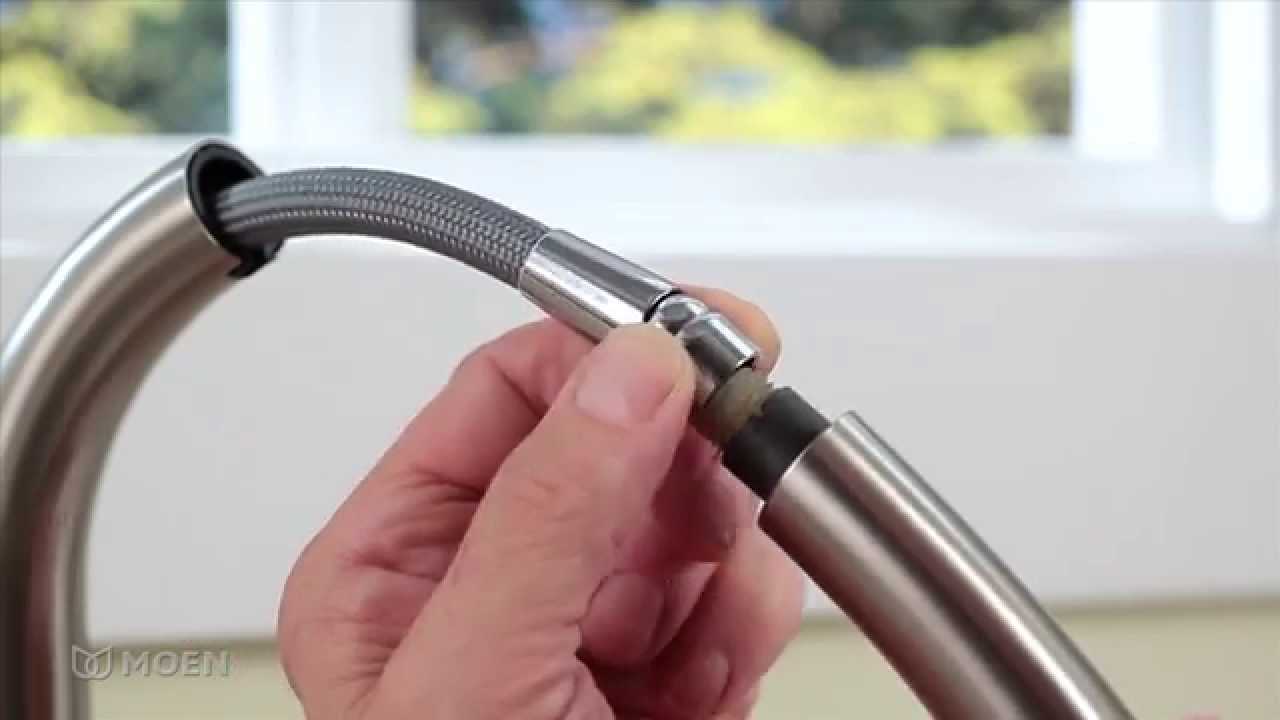
Accurate representations enable technicians to identify the necessary components swiftly. When a repair is needed, having a reliable guide minimizes downtime, allowing for a quicker resolution. This efficiency is crucial in maintaining the overall performance and longevity of any system, ensuring it operates at its best.
Maintenance Tips for Longevity
Proper upkeep of fixtures and components ensures they remain functional and aesthetically pleasing for years. Implementing a routine care regimen can prevent common issues and extend the lifespan of these essential household elements.
Regular Cleaning Practices
Maintaining cleanliness is crucial for preventing buildup and ensuring optimal performance. Follow these steps for effective cleaning:
- Wipe surfaces regularly with a soft, damp cloth to remove dirt and grime.
- Avoid harsh chemicals that may damage finishes; instead, use mild soap and water.
- Inspect for any signs of wear or damage and address them promptly.
Routine Inspections
Conducting regular checks can help identify potential problems before they escalate. Consider these tips:
- Examine seals and gaskets for cracks or degradation; replace as necessary.
- Ensure that all moving parts are functioning smoothly and lubricate if needed.
- Check for leaks or drips, which may indicate underlying issues that require attention.
Replacement Parts Overview
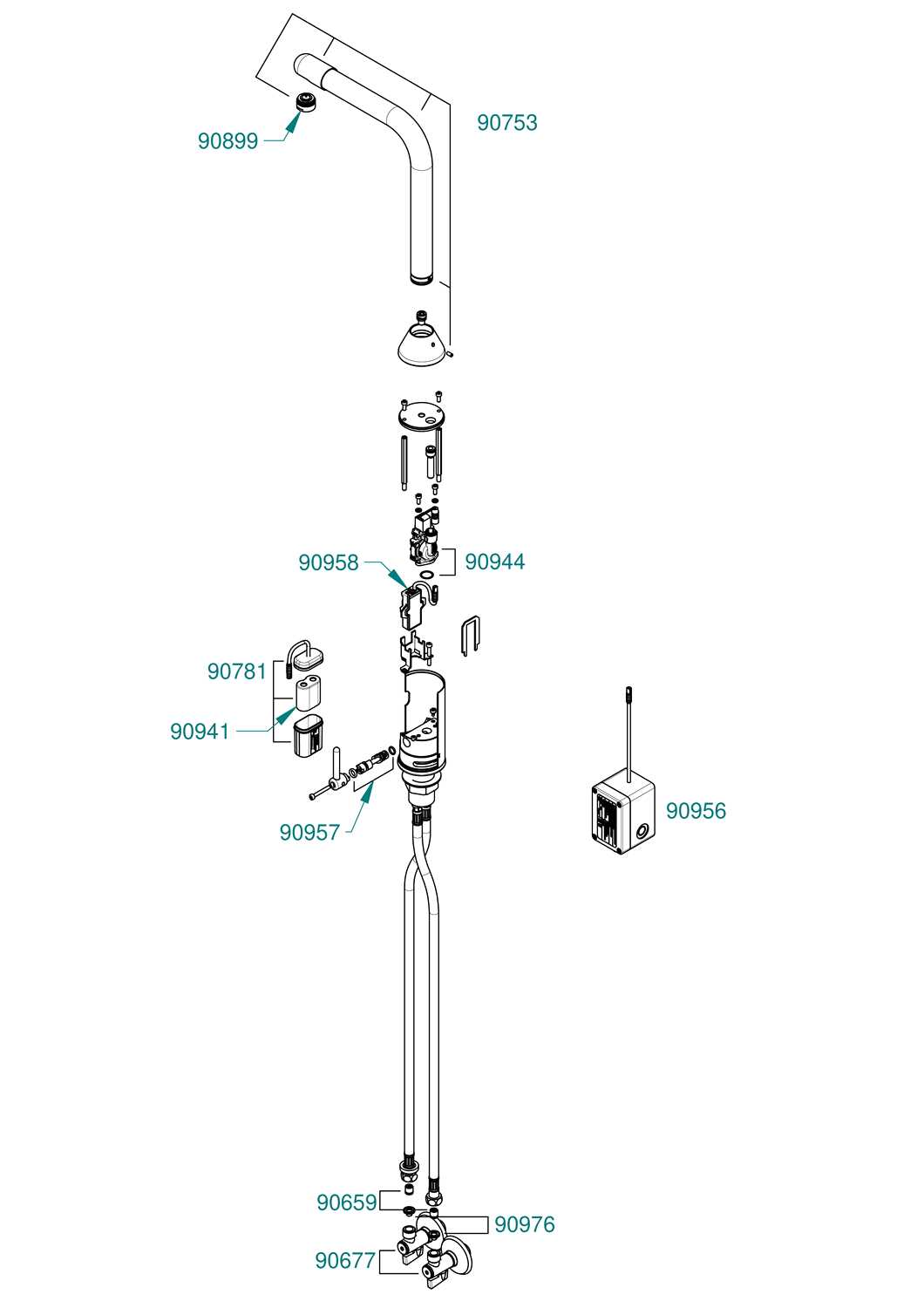
This section provides a comprehensive look at the components necessary for maintaining and repairing specific plumbing fixtures. Understanding the various elements involved is essential for ensuring optimal functionality and longevity of the system. With the right components, users can effectively address common issues and enhance performance.
Each fixture comprises several essential components, each playing a vital role in overall operation. From handles and cartridges to seals and valves, each element must be compatible and of high quality to ensure a proper fit and reliable performance. By familiarizing oneself with these elements, users can make informed decisions when seeking replacements.
Moreover, sourcing quality components can significantly impact the effectiveness of repairs. It’s crucial to consider the specifications and material quality of each part to avoid future complications. Utilizing trusted suppliers and verifying compatibility can streamline the repair process, saving time and effort in the long run.
Finding Compatible Components
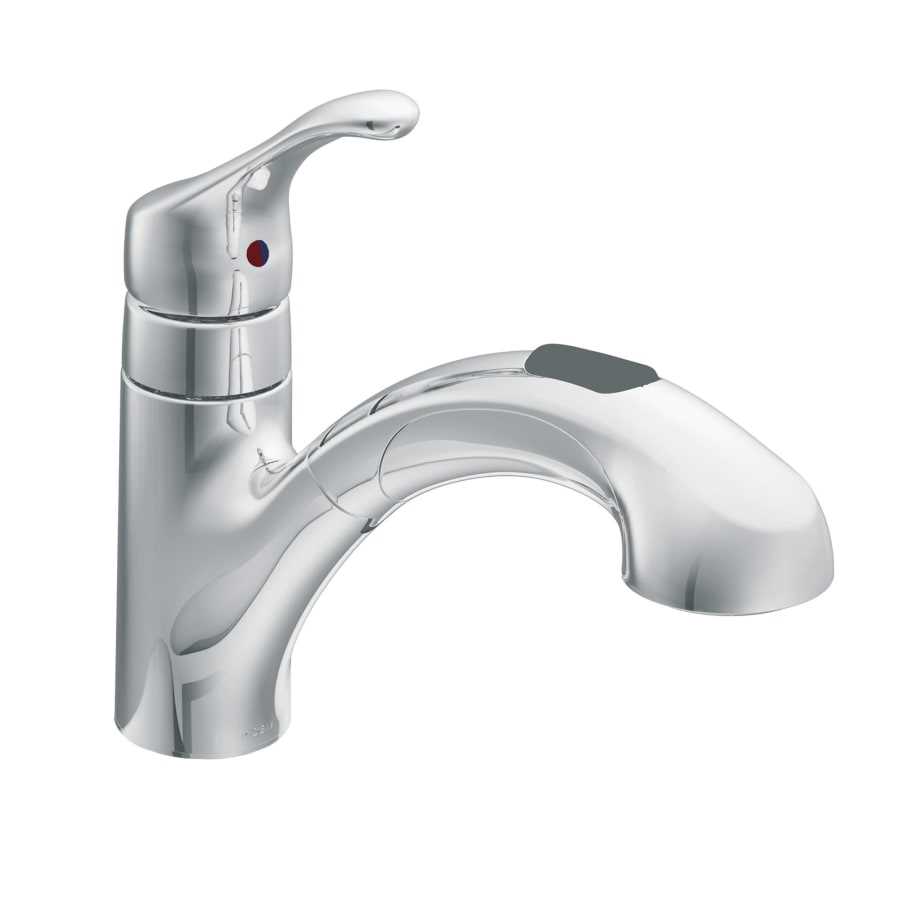
Identifying suitable elements for replacement or upgrade can be challenging. When working on a system, ensuring that each piece fits and functions properly with the existing setup is crucial for maintaining optimal performance. The compatibility of these components will affect both the ease of installation and the longevity of the entire unit.
Assessing Specifications
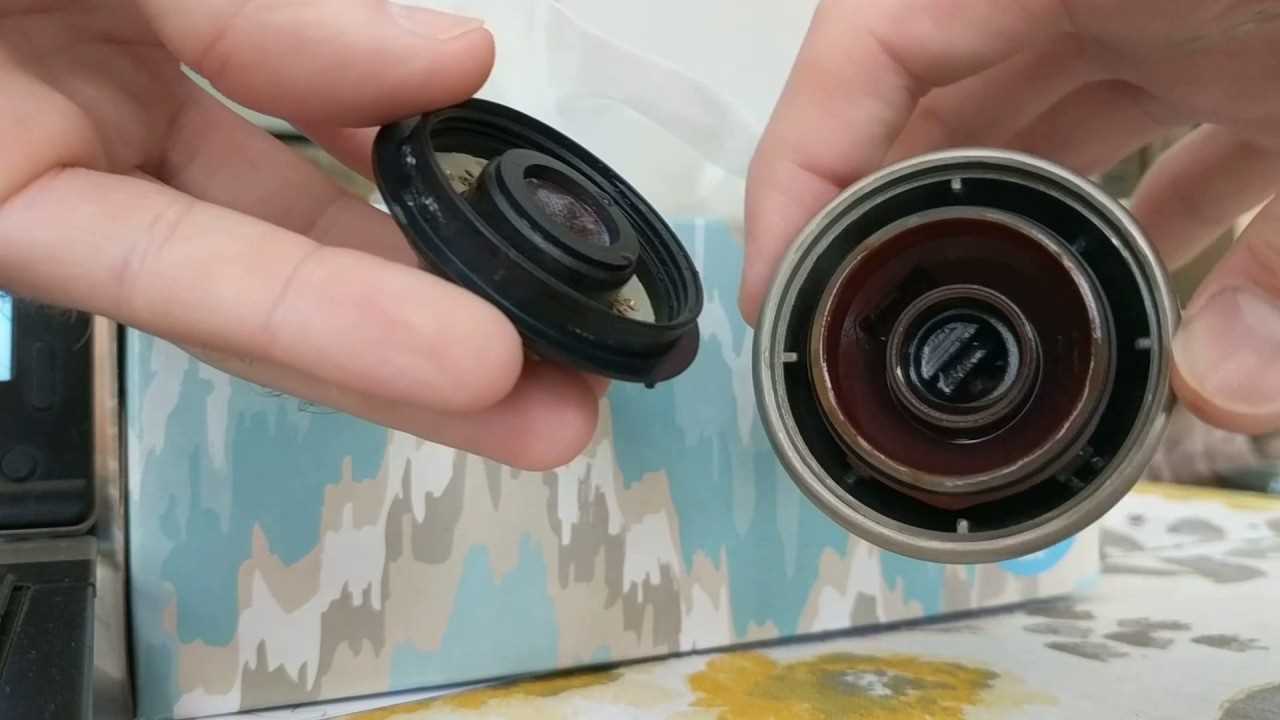
Before selecting new elements, it’s essential to review the technical details. Matching key specifications ensures that the new part integrates seamlessly with the existing setup.
- Dimensions: Ensuring that the size is appropriate for the intended slot or section.
- Material compatibility: Checking that the materials are durable and work well together.
- Functionality: Verifying that the replacement serves the same purpose without additional modifications.
Assembly Instructions Simplified
When approaching the installation process, it’s essential to break down the steps in a clear and manageable way. By following a structured method, you can ensure a smooth and efficient setup without complications. This guide will help you navigate through the process easily, allowing even those unfamiliar with such tasks to achieve success.
Tools and Materials Preparation
Before beginning, gather all necessary equipment to streamline the work. Ensure that you have the right tools to avoid interruptions during the assembly process.
- Screwdrivers
- Adjustable wrench
- Plumbers tape
- Cleaning cloth
Tools Needed for Repairs
To carry out successful repairs, it’s crucial to have the right equipment at hand. The correct selection of tools can ensure both efficiency and precision, reducing the risk of damage and prolonging the lifespan of the fixture.
- Adjustable Wrench: Essential for loosening or tightening various fittings and fasteners.
- Screwdriver Set: Both flathead and Phillips are required for removing screws during disassembly.
- Pliers: Useful for gripping, turning, or pulling out small components.
- Allen Wrenches: Needed for adjusting screws and bolts in tight spaces.
- Plumber’s Tape: Important for ensuring a watertight seal when reassembling connections.
Visual Aids for Installation
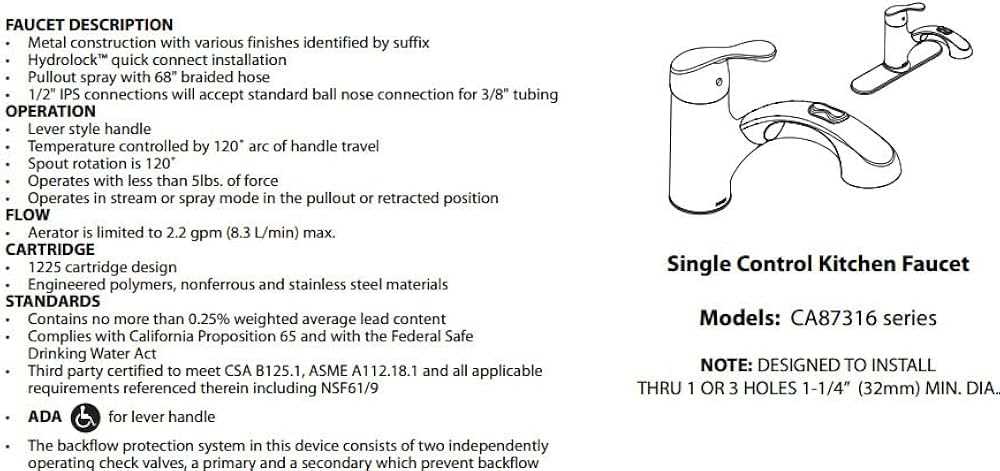
When setting up a fixture, clear and comprehensive visual resources are invaluable for ensuring smooth assembly. Diagrams and illustrations simplify the process by breaking down each component, allowing even those with limited experience to follow along confidently. These visuals serve as a guide, providing a step-by-step reference to ensure accuracy.
Detailed illustrations highlight key elements, offering clarity on placement and alignment. By following these images, users can avoid common mistakes, ensuring a proper setup. Every section of the system can be understood with precision, minimizing guesswork and improving efficiency.
Exploring Warranty Information
Understanding the warranty coverage for various fixtures is essential when making a long-term investment in home improvements. Whether replacing components or troubleshooting issues, having clear information on warranty terms can save both time and money. This section delves into what to expect from standard warranties and how to navigate claims.
Types of Warranty Coverage
Many manufacturers offer different types of warranties, including limited lifetime, specific component coverage, or service guarantees. Limited lifetime warranties generally apply to key elements, while other types may cover workmanship or defects. It’s important to review the fine print to understand what is included and what exclusions may apply.
How to File a Claim
Customer Support Resources
When it comes to maintaining or repairing fixtures, having access to reliable help can make all the difference. Understanding where to turn for assistance, whether for troubleshooting or technical advice, ensures that any issue is addressed efficiently. Various platforms offer guidance, from instructional materials to direct contact with professionals.
Online Guides and Tutorials
Many websites provide detailed resources that cover a wide range of topics related to product maintenance. These may include step-by-step tutorials, frequently asked questions, and video demonstrations. Such content is invaluable for those who prefer a hands-on approach.